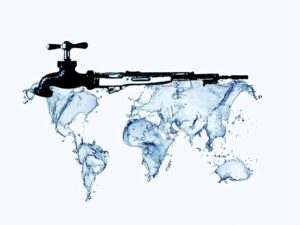Will the "enemy brothers" succeed in overcoming their differences and challenging American hegemony?
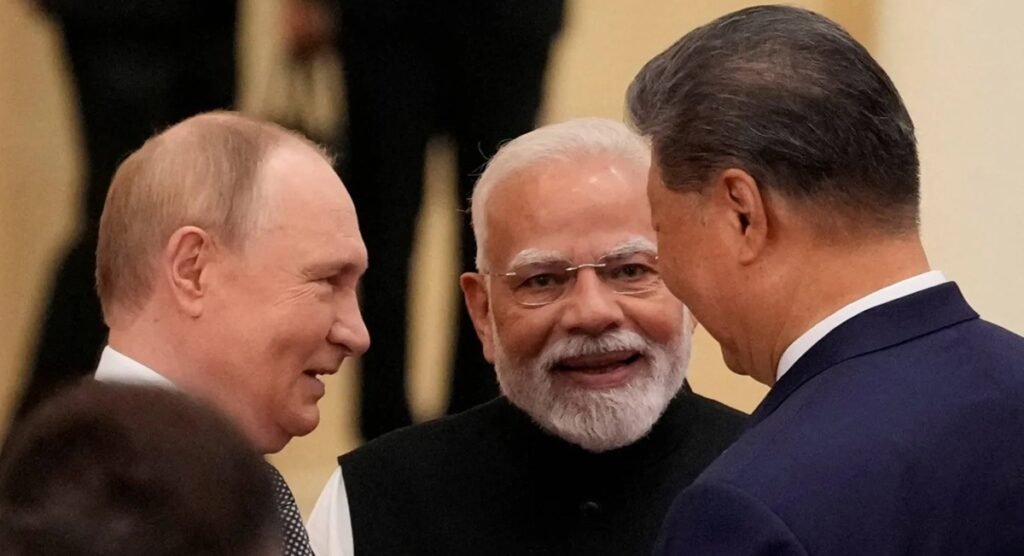
The historic Shanghai Cooperation Organization (SCO) summit concluded in the Chinese city of Tianjin, which many observers considered a "rebirth" for the organization after 24 years. More important than the summit's final statement, which was closely followed by all international observers, especially in the United States, Europe, and their allies, was the attempt to discern whether the "enemy brothers"—China, Russia, and India—are truly capable of turning the page on their bilateral differences and forging a path toward genuine cooperation that will contribute to accelerating the birth of a new world order, free from American hegemony in particular and Western hegemony in general. Observers and experts at leading international research centers agree that the improvised policies of US President Donald Trump are decisively contributing to pushing the "victims" to sit together, attempt to put aside their differences, and jointly confront Trump's hostile policies, which have been labeled "tariffs." But before attempting to answer our central question, let's take a brief look at the organization.
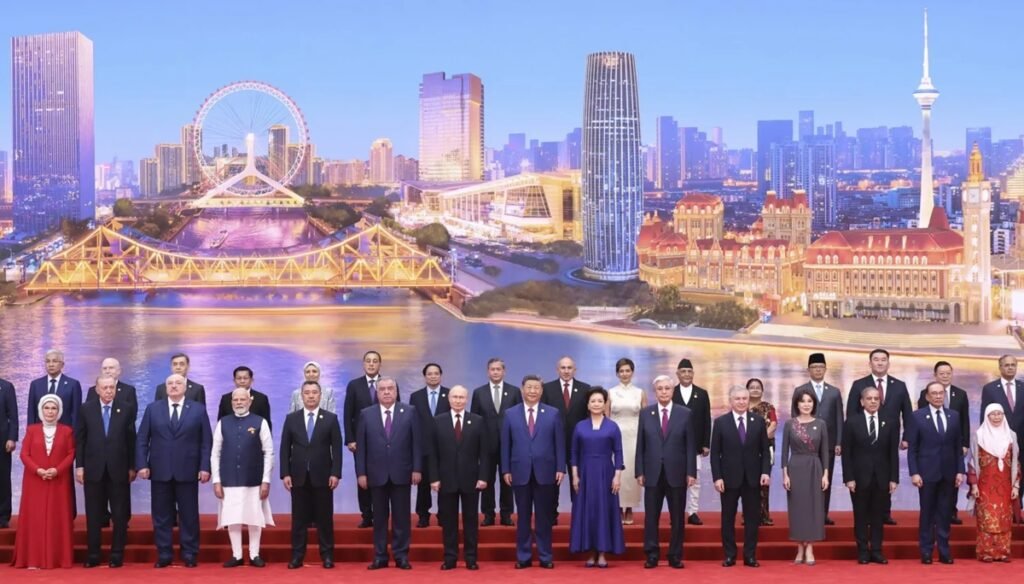
The Shanghai Cooperation Organization (SCO) was established in 2001 as a multilateral organization aimed at promoting political, economic, and cultural cooperation among the countries of Central Asia. The organization was created amidst growing concerns about security and stability in the region, driven by regional conflicts and terrorist threats. The organization's founding members were China, Russia, Kazakhstan, Kyrgyzstan, Tajikistan, and Uzbekistan. Since then, additional countries (India, Pakistan, Iran, and Belarus) have joined the organization, expanding its scope and influence.
The primary goal of the Shanghai Cooperation Organization is to promote security and economic prosperity through coordination among member states to address security challenges, including terrorism, extremism, and separatism. The organization also seeks to enhance economic cooperation through joint projects and facilitate trade and investment among members. In addition, the organization focuses on cultural and social work that encourages dialogue among different civilizations.
Internationally, the Shanghai Cooperation Organization (SCO) is playing an increasingly important role in the geopolitical context, reflecting the desire to achieve a new balance of global power. The organization has witnessed notable developments in recent years, including the holding of an annual summit bringing together leaders from member states to address various regional and international issues of concern. These meetings contribute to promoting common interests, achieving security and peace goals in the region, and highlighting the challenges facing member states.
In addition to the 10 SCO member states, there were two frameworks for non-full membership: observer membership (Mongolia and Afghanistan) and "dialogue partner" membership, which included the five Gulf Arab states (excluding Oman), the Maldives, Myanmar, Nepal, Cambodia, Sri Lanka, Laos, Armenia, Azerbaijan, Turkey, and the sole African country, Egypt. These 17 countries were combined at the summit into a single category (SCO partner).
Although the organization's primary goal is to combat terrorism and extremism and strengthen economic and trade ties, it has been criticized for providing little assistance when one of its members is threatened, as occurred in the case of the Israel-Iran war, the India-Pakistan conflict, or the Russia-Ukraine war. Economic cooperation remains the most prominent area of cooperation among the organization's member states, through improving intra-trade, coordinating agricultural policies, and promoting mutual investments. Through these activities, the organization seeks to create an environment conducive to economic growth, which would serve the development goals of member states.
The goal that exists "in the shadows" concerns the attempt to build a diverse global system that transcends Western hegemony. The Shanghai Cooperation Organization seeks to provide a model for regional cooperation based on mutual respect and shared interests, contributing to a balanced international relations. By integrating security and economic efforts, the organization's ultimate goal is to promote a secure, prosperous, and integrated future for all members. This reflects the desire of member states to institutionalize cooperation as a means of strengthening sovereignty and achieving sustainable development.
Will the "enemy brothers" succeed in overcoming their differences?
Relations between China, India, and Russia date back several decades and have been fraught with tensions and disagreements that have shaped regional and international dynamics. Despite their shared history, including cooperation in diverse areas such as economics and security, political and military tensions have dominated their relations. For example, the Sino-Indian border has witnessed confrontations that have been a turning point in bilateral relations, sometimes negatively impacting regional cooperation.
On the other hand, Russia is considered a pivotal power in this triangle, playing a role in calming tensions between the two sides. Historically, Moscow has sought to maintain a balance of power while maintaining strong relations with both Beijing and New Delhi. These dynamics reflect the changing geopolitical realities that have emerged as a result of regional and international conflicts. To understand how these relations affect future cooperation, it is necessary to examine the common interests that may push these countries to overcome their differences. What are the most prominent points of divergence and convergence between these countries?
China and India:
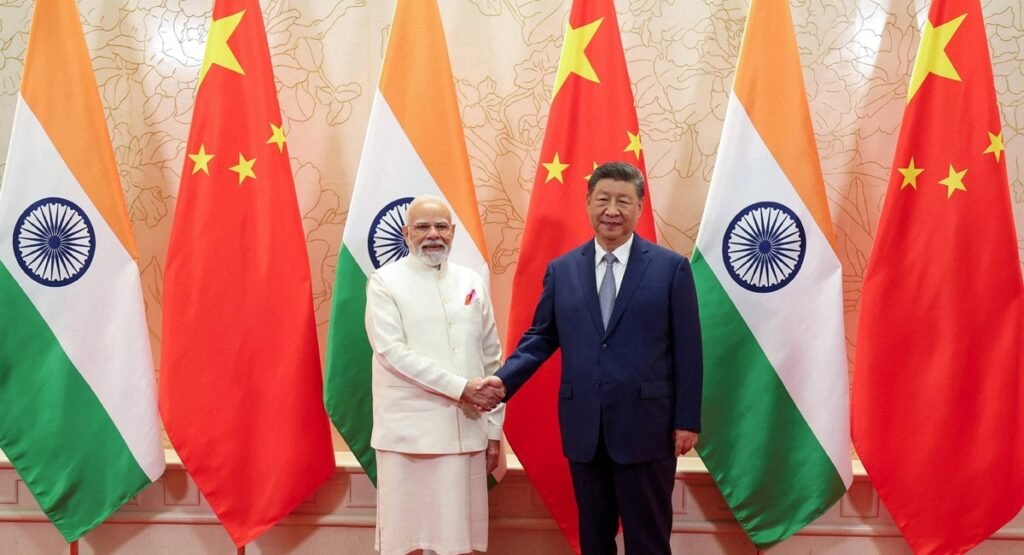
The main dispute file between China and India is border disputeIt is a complex conflict with historical and geographical dimensions.
disputed borders: The dispute is mainly focused on two areas:
Aksai Chen (Aksai Chin): A barren, uninhabited region located in the west. It is controlled by China and considered part of its Xinjiang region, while India claims it as part of its Ladakh region. This region is of strategic importance to China because it contains a road linking Xinjiang and Tibet.
Arunachal Pradesh (Arunachal Pradesh): An area located to the east, south of the "McMahon Line" drawn during the British colonial era in 1914. China does not recognize this line and considers Arunachal Pradesh part of South Tibet.
1962 War: Tensions over this border escalated into a short but violent Sino-Indian war in 1962. The war ended with a Chinese victory, but it left the Line of Actual Control (LAC) as a persistent flashpoint, with periodic skirmishes between forces on both sides, most notably the bloody clash in the Galwan Valley in 2020.
Other dimensions: The border dispute goes beyond the regional aspect to include:
Tibet issue: India has granted asylum to the Dalai Lama and many Tibetan refugees, angering Beijing, which considers Tibet an integral part of China.
Relations with Pakistan: India considers the strategic relationship between China and Pakistan, which includes military and economic cooperation, a direct threat to its national security, especially given that the China-Pakistan Economic Corridor project passes through disputed territory in Kashmir.
China and Russia
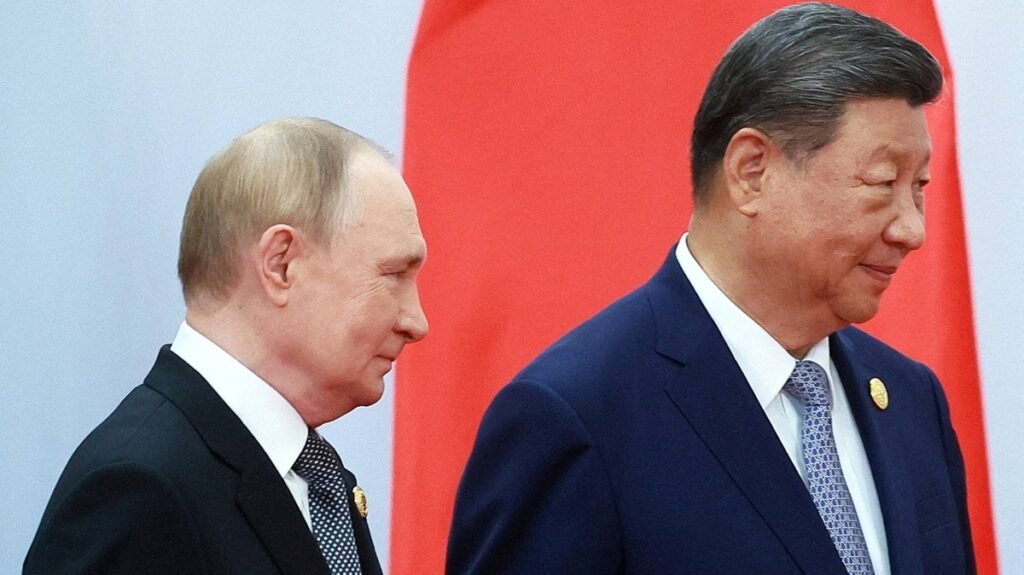
China and Russia
Despite the current strategic partnership, relations between China and Russia (formerly the Soviet Union) have gone through a long period of hostility and disagreements, most notably:
ideological dispute: After Stalin's death in 1953, ideological tensions began between Soviet leader Nikita Khrushchev and Chinese leader Mao Zedong. Mao criticized "Soviet revisionism" and the softening of Marxism-Leninism, while Khrushchev considered Mao's policies extremist. This ideological divide led to a public split within the communist camp.
border disputes: The dispute was not limited to ideology, but included historical border disputes.
Russian expansion in the Far East: In the 19th and 20th centuries, the Russian Empire seized vast areas of territory that had belonged to the crumbling Qing Empire of China.
1969 Soviet-Chinese border conflict: Tensions escalated into brief but serious military clashes along the border, particularly on Jinbao (Damansky) Island on the Ussuri River. This conflict brought the two countries to the brink of war and pushed China toward rapprochement with the United States, leading to Nixon's historic visit to Beijing in 1972.
geopolitical competition: There was an ongoing competition between them for influence, especially in Central Asia, during the Cold War and after the collapse of the Soviet Union, as both countries sought to fill the vacuum left by Moscow.
Russia and India
Unlike China and India, relations between Russia and India have historically been characterized by close alliance and mutual trust, not disagreements. This alliance was consolidated during the Cold War and continues to this day.
relationship during the Cold War:
India adopted a policy of "non-alignment," but leaned heavily toward the Soviet Union.
The Soviet Union was the main supplier of arms to India, especially during its wars with Pakistan.
The Soviet Union used its veto power in the Security Council to support India's position on the Kashmir issue on several occasions.
After the collapse of the Soviet Union: Strong relations between the two countries have continued, although economic relations declined for a period.
Today, Russia is the largest supplier of arms and military equipment to India.
There is extensive cooperation in the fields of nuclear energy, space and defence.
India's stance on the war in Ukraine, where it has not explicitly condemned the Russian invasion, highlights the depth of its ties with Moscow.
Trump's policies and their positive and negative effects
US President Donald Trump's policies are among the most significant factors influencing the international landscape, including relations between the member states of the Shanghai Cooperation Organization. These policies have been characterized by a shift toward "America First," leading to a reassessment of some foreign relations. While this approach has had some benefits in terms of advancing US national interests, it has also created tensions with some countries, including SCO members.
On the positive side, some aspects of cooperation between China, India, and Russia can be seen as a natural response to US policies. The deterioration of relations between the United States and major powers has contributed to strengthening existing alliances. The Shanghai Cooperation Organization (SCO) member states, which include China, Russia, and India, have come to recognize the importance of unity and cooperation in the face of US pressure. Trump's tendency to impose trade sanctions on both his Chinese rivals and his Indian allies has also encouraged the SCO member economies to forge stronger trade partnerships among themselves.
However, US policies have also had negative consequences. The policy of withdrawing from numerous international agreements has exacerbated mistrust between the United States and other countries. The rise in nationalist and protectionist rhetoric in the United States has been met with reactions from members of the Shanghai Cooperation Organization, reflecting a desire to strengthen national sovereignty. This turmoil in international relations has led to new complications, as cooperation among major powers has increasingly relied on mistrust of US intentions, affecting the effectiveness of cooperation within the Shanghai Cooperation Organization.
The current reality of cooperation between China, India, and Russia
Cooperation between China, India, and Russia is a key element of the geopolitical dynamics in Central Asia. Under the umbrella of the Shanghai Cooperation Organization, these countries seek to achieve multiple goals, including enhancing security, trade, and economic and social development. In recent years, a number of initiatives have been implemented that reflect these joint efforts, such as infrastructure projects and investment partnerships. For example, energy and transportation projects are underway to connect these countries, facilitating trade and promoting economic integration.
Moreover, sectoral assessments show that cooperation extends to areas such as digital security and counterterrorism. Joint military exercises are part of this cooperation, reflecting a commitment to strengthening regional security in the face of global challenges. These military activities are not merely training exercises; they enhance these countries' ability to protect their national interests under changing circumstances.
However, challenges remain. Some studies indicate that the relationship between the three countries may be tested by cultural and economic differences. Expectations for tangible results from these partnerships continue to fluctuate, as the success of these initiatives depends on effective and sustainable coordination. Overall, there is still a belief that cooperation between China, India, and Russia in the Shanghai Cooperation Organization can contribute to regional stability, peace, and development.
Geopolitical analysis of trilateral relations
Relations between China, India, and Russia are a vital axis in the global geopolitical order, manifested within the framework of the Shanghai Cooperation Organization. These relations reflect a strategic development that goes beyond bilateral interests, as the three countries seek to strengthen their cooperation in the economic and security fields. This cooperation is a means of enhancing regional influence amid the changing geopolitical landscape on the international scene.
These trilateral relationships pose a potential threat to other major powers, particularly the United States and the European Union. On the one hand, these countries cooperate through intelligence sharing and foreign policy coordination, increasing their effectiveness in addressing global challenges. On the other hand, China, India, and Russia are breaking free from the traditional hegemony imposed by Western powers, reflecting a shifting balance of power on the international stage.
This partnership is seen as a platform for promoting multilateral approaches to conflict resolution, as the three countries seek to limit the influence of Western powers in global affairs. For example, cooperation between China and Russia in the energy sector, and between India and other partners, reflects the complementary economic interests of these three powers. This integration also enhances the image of the Shanghai Cooperation Organization as an effective platform for coordinating security policies and confronting common challenges.
China-India-Russia relations create a radical alternative to regional cooperation and support the emergence of a trilateral power capable of confronting global challenges. This demonstrates the importance of geopolitical analysis in understanding the dynamics of these relations and their impact on the international order, especially given that the organization's countries represent half of the world's population, produce a quarter of the world's gross domestic product, and are a hub for energy and rare metals.
Will the enemy brothers succeed in overcoming their differences?
The future of cooperation between China, India, and Russia within the Shanghai Cooperation Organization (SCO) remains an increasingly important topic in light of changing global geopolitical dynamics. Relations between these countries are complex, marked by historical tensions and conflicting interests. However, there are also commonalities that could serve as a basis for fruitful cooperation.
The Shanghai Cooperation Organization (SCO) is an effective platform that encourages dialogue and cooperation in various areas, such as economic security and development. In recent years, China, India, and Russia have demonstrated a growing desire to cooperate within this framework, suggesting the potential for overcoming differences. However, challenges to this cooperation remain, including the border disputes between China and India and their divergent military policies.
Despite current obstacles, some past negative indicators, which have been overcome in other areas of cooperation, reflect the potential for the three countries to successfully overcome their differences. Economics is one of the key factors that could play a significant role in strengthening cooperation. Amid global economic challenges and increasing US competition, China, India, and Russia can advance the Sustainable Development Goals by strengthening regional cooperation mechanisms.
Regional and international factors and political will play a fundamental role in shaping the future of cooperation between these major powers. It is important to create an environment that attracts partners and fosters joint endeavors. While numerous disagreements can be obstacles, strategic cooperation and leveraging shared economic benefits may provide innovative ways to overcome these obstacles.
In conclusion, attempting to answer the central question above through the history and complexities of the relationship between China, India, and Russia will rule out the possibility of a successful attempt to create a parallel pole to the West. However, if we look at the issue from a future perspective, and judge the cooperation of the three poles based on the logic of common interest and the "common enemy" represented by the United States, whose hostility has doubled over the past few months with the entry of Donald Trump into the White House, and based on the atmosphere that prevailed at the summit in Tianjin, a positive answer is possible. While these countries collectively have structural weaknesses in the face of the United States and its Western allies, they also possess strengths that enable them to aspire to a vision of a multipolar world that will bury the era of unipolarity and end the bet on an era of bipolarity (America/China).




